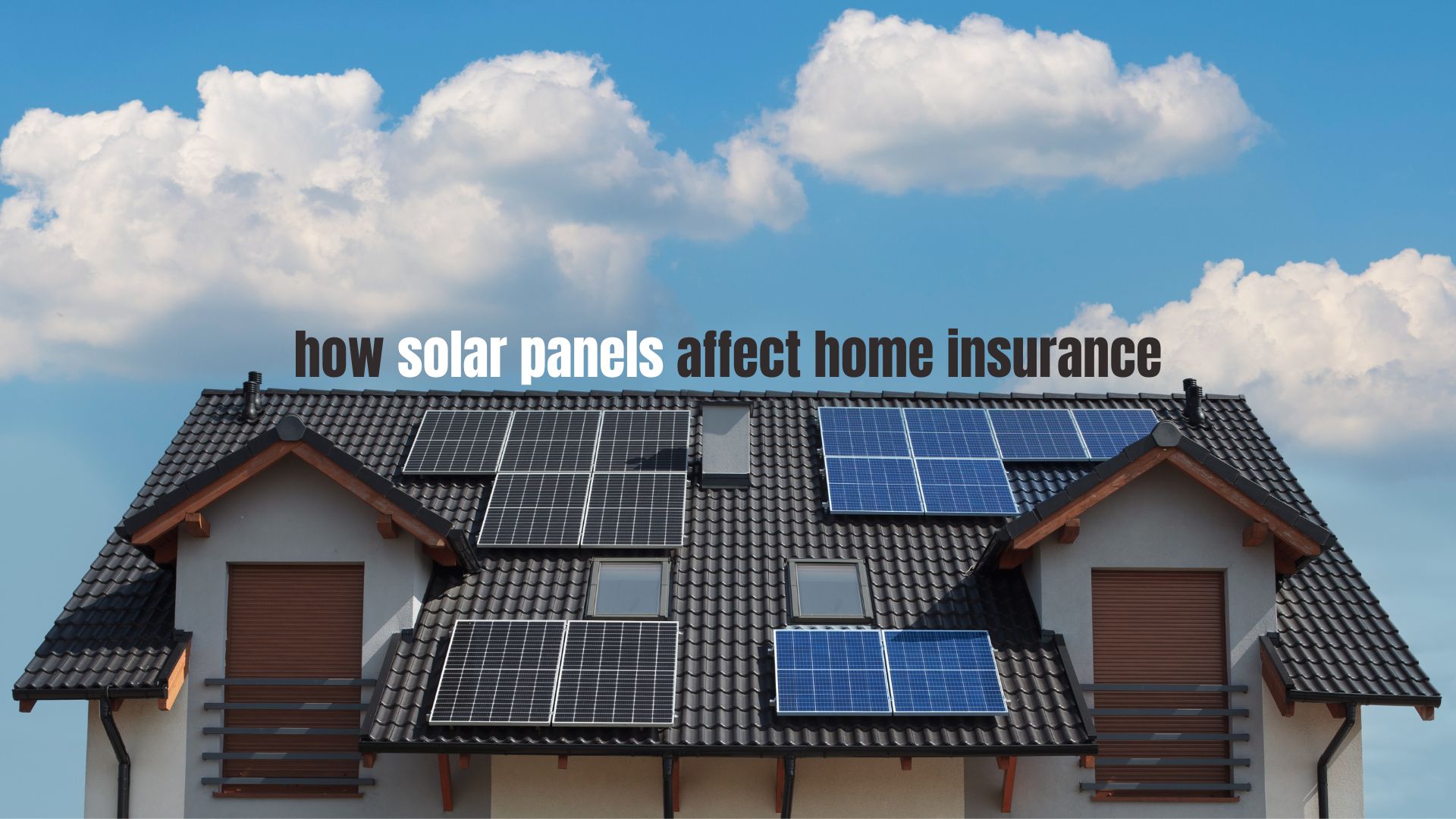If you're a homeowner, you've likely considered moving to solar power. But with this move comes many questions, including its impact on your home insurance. This is a significant investment, and you don't want to be left with a system that isn't insured. So, what do you need to know about solar energy, and how does it affect your home insurance?
When it comes to home insurance and solar energy, you need to consider a few things. Some of these include looking at whether your home insurance covers your solar system. Do you need to purchase additional insurance to cover it? And what limitations are there on your home insurance policy?
Moving to solar means you'll save energy; most homeowners will save roughly $1,500 a year on their electric bills. This clean energy increases your home's value and is an excellent long-term investment. But this is costly, and you want to ensure that if your system is damaged, your home insurance will cover it.
Does Home Insurance Cover Solar Panels?

Home insurance usually covers solar power as it's attached to your home. However, some policies stipulate that it needs to be a fixed structure. In other instances, if the panels are older and have not been maintained or upgraded, they may not be entirely covered by your insurance.
This means you’ll need to purchase additional products from your insurer. (Related article: Yes, Solar Panels Are Usually Covered By Home Insurance. Here’s What You Need To Know!)
Fixed Structures vs. Detached Structures and Home Insurance
If your solar panels are fixed to your roof, then your insurance will likely cover them. This is classified as dwelling coverage in your policy. If there is any damage, the panels will be repaired or replaced. But depending on the type of policy you have, there may be certain limitations, such as a limited payout or no payout due to damage from extreme weather conditions.
If your panels aren't fixed to the roof but are detachable, they may be classified as other structures and are unlikely to be covered by your insurer. This does vary depending on the type of policy you have, but you can always purchase additional coverage.
Many solar systems come with a warranty from the manufacturer. This can help offset some of the expenses if there is damage, but you'll still want to check what your home insurance policy covers thoroughly.
Reputable companies typically offer a 10 to 25-year warranty covering certain aspects like performance and product defects but won’t cover anything else that an insurer is responsible for covering.
This is why it’s so important to thoroughly check what is covered in your home insurance policy when you install your panels.
Should You Get Home Insurance For Leased Solar Panels?
Many homeowners do not have the budget to install a solar structure and instead opt to lease one. When leasing panels, you do not need to get home insurance for it. The leasing company is responsible for the insurance and will likely carry out all the required servicing and maintenance.
However, it is recommended that you check with the leasing company beforehand about what they cover just to ensure that you don't need to get home insurance for your leased system. (Related article: Leasing a Solar System: Is it Worth it?)
Do Solar Panels Affect Home Insurance?
If your insurance policy covers your solar energy system, it will not affect your home insurance, but it depends on your insurer.
If it is a permanent structure, it is considered part of your home and is naturally covered. However, you may want to purchase additional insurance if you have detached panels and if you want to ensure that the total cost of the structure is covered should it get damaged.
You can also opt to increase your home insurance instead of purchasing additional insurance, which will cover the costs of your clean energy structure. This also means your monthly premium will increase, but you'll have peace of mind knowing it's completely covered.
Do Solar Panels Increase Insurance?
Adding solar to your home may or may not increase your insurance, but this depends on the type of policy you have. Generally, your insurance premium will stay the same if you install solar, but you may want to up your current insurance policy or take out additional insurance to cover the costs of the panels.
According to the Center for Sustainable Energy, a residential system can cost between $10,000 and $15,000, and some even cost up to $25,000. If your current insurance does not pay out an amount close to this or matches this, you may want to consider additional coverage.
If your home is in a place where you experience extreme weather conditions, it may also be a good idea to check if your insurance covers damages due to bad weather. Many insurers don't pay for damage due to:
You'll find what your insurer covers in the ‘Perils’ section of your policy.
Telling Your Insurance Provider About Your Solar Panels
As a homeowner, it's advisable to inform your insurance that you'll be installing solar energy. Informing your insurer will help you better understand what's included in your policy, and they can recommend additional products you may need to add to your policy to cover your new system.
Do Solar Panels Increase Home Value in California?
According to SEIA, California is ranked as the best solar state in the U.S. There are approximately 10,748,338 homes in this state with clean power. In California, this energy source increases a home's value by 2.7%, but in cities like New York, it increases the value of homes by 5.4%.
In general, homeowners across the U.S. can expect a 4.1% increase in the value of their homes with solar installed.
The California Solar Mandate
The California Solar Mandate requires all newly constructed homes to be fitted with a solar system (since 2020). With this, homeowners can save $80 a month on electricity. While these regulations affect most homes in California, there are some exemptions. Properties with lots of shade or tiny roofs may be exempt and will not need to install solar.
This mandate also permits community installations as long as they are approved by the Californian Clean Energy Commission and provide similar benefits to homeowners.
Final Thoughts
Solar installations have increased by 20% since 2022 and continue to rise yearly. This is an excellent option for homeowners looking to move to clean energy. While this remains a significant investment, most insurance policies cover these structures to some extent. Still, you may be required to purchase additional insurance products to cover the total value of the system.

